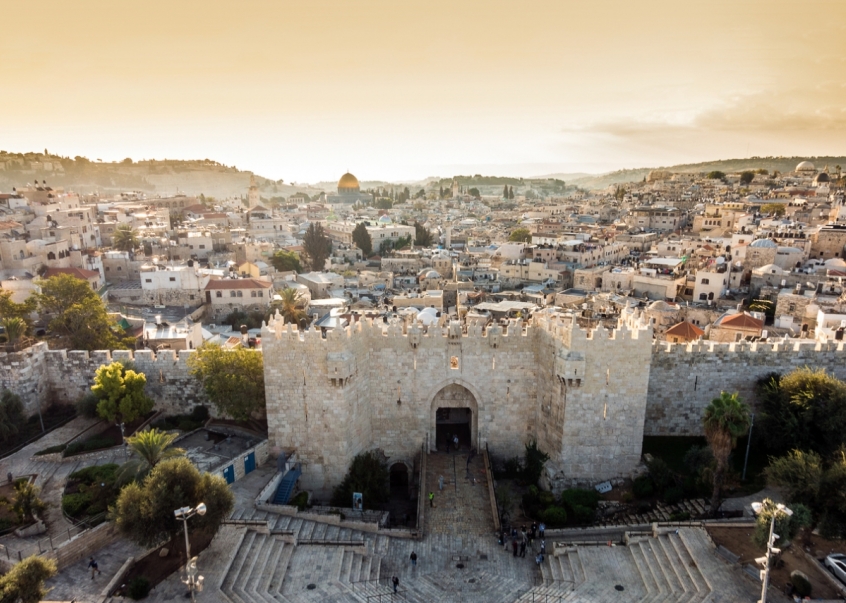
Church leaders are urging Prime Minister Liz Truss to rethink plans to move the British Embassy in Israel from Tel Aviv to Jerusalem.
If the move goes ahead, Britain would be following in the footsteps of the US, whose embassy relocated from Tel Aviv to Jerusalem under former president Donald Trump in 2018.
The Council of the Patriarchs and Heads of the Churches in Jerusalem issued a statement expressing "grave concern" at Truss' plans, which come in response to a request from the Conservative Friends of Israel.
In the statement, the council says that moving the British embassy to Jerusalem would "severely undermine" the city's special status and be a "further impediment to advancing the already moribund peace process".
Instead of relocating its embassy, the council said that Britain should focus its resources on facilitating the re-commencement of negotiations between Israel and the Palestinian Authority.
"As Churches, our ecclesiastical jurisdictions cover all of the political territories of the Holy Land, a region where Christians have lived for 2,000 years, under many different empires and governments," they said.
"The religious status quo in Jerusalem is essential for preserving the harmony of our Holy City and good relations between religious communities around the globe.
"Implicit to the recognition of this Status Quo is the aforementioned corpus separatum [special status' that most of the world's governments have applied by refraining from locating their embassies in Jerusalem until a final status agreement on the Holy City has been reached.
"The contemplated movement of the British Embassy to Jerusalem would severely undermine this key principle of Corpus Separatum and the political negotiations that it seeks to advance.
"Indeed, the very act of reviewing the placement of the British Embassy not only suggests that negotiated agreements regarding Jerusalem and the West Bank have already resolved the ongoing disputes between the involved parties—when in fact they have not—but also implies that no such negotiations are needed: that the continuing military occupation of those territories and the unilateral annexation of East Jerusalem are both acceptable.
"We cannot believe that this is the message that the British government wishes to send to the world."
The council's concerns were echoed in a letter to Truss this week from leaders in the Church of Scotland, Church of England, United Reformed Church, Methodist Church in Great Britain, Quakers, Christian Aid and other Christian organisations.
The letter asks the Prime Minister to "maintain the obligation of all nations to respect the historic status quo of the Holy City, in conformity with the relevant UN resolutions".
The letter cites comments by the Holy Land Co-ordination, a group of Christian church leaders from around the world, who after their May 2022 visit to Jerusalem stated that: "Jerusalem is a Jewish city, a Christian city, a Muslim city. It must remain a common patrimony and never become the exclusive monopoly of any one religion. It is our right and duty as Christians to uphold the city's openness and universality."
The letter concludes with a warning that "a review of the location of the embassy would only send a negative signal that would not serve the interests of a sustainable and just peace for all, Palestinian and Israelis alike."
The Moderator of the General Assembly of the Church of Scotland, Rt Rev Dr Iain Greenshields, said: "The General Assembly has consistently supported a negotiated solution to the ongoing occupation of the Palestinian territory, which includes East Jerusalem, and unilateral UK action to move its embassy would not support efforts to see a peaceful, long-term resolution of this historic injustice."













